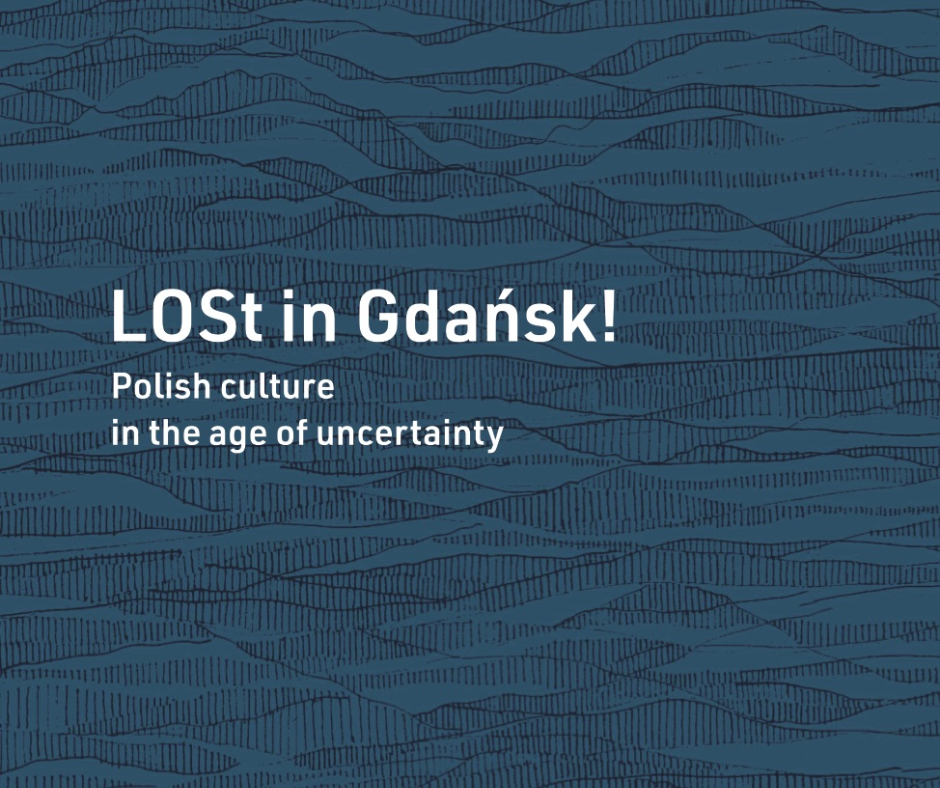The Academic Centre of Polish Language and Culture for Foreigners at the University of Gdansk is proud to present its latest publication “LOSt in Gdansk! Polish culture in the age of uncertainty”. It is a unique study that explores the history, culture and contemporary challenges of Gdansk.
The publication summarises the project carried out at the University of Gdansk under the SPINAKER programme, and is available at the link: LOST_in_Gdansk.pdf.
The authors are Irena Chawrilska, PhD, Sonia Czaplewska, Michał Pruszak, PhD, Martyna Wielewska-Baka, PhD.
The project “LOST in Gdańsk!” was implemented from October 2022 to August 2023 by ACJPiKP in cooperation with the Faculty of Philology and the Centre for Sustainable Development of the University of Gdańsk. Thanks to the project, a Summer School was organised for a group of twenty students from Japan in July/August 2023. An account of the event can be viewed here: Event report.
“The main objective of the project was to create and implement two intensive international education programmes for foreign students interested in Polish language and culture, particularly from a local perspective. The publication contains theoretical considerations on teaching Polish culture to foreigners and practical solutions to be used in classes on Polish as a foreign language,” reads the ACJPiKP announcement.
“LOST in Gdańsk” describes the fascinating history of the city of Gdańsk, showing its turbulent history and rich culture. The authors address the theme of Polishness in the context of a multilingual global village, emphasising that a true understanding of Poland requires direct contact with its culture. The project showcases the diversity and uniqueness of the Pomeranian region, bringing in the international and intercultural perspective of students from the Tokyo University of Foreign Studies.
The book covers a variety of topics related to the culture, history and contemporary challenges of the Vistula Delta region, from art and meditation on nature to hybrid reality and tsaibernetics. Buddhist inspirations in Czesław Miłosz’s poetry, the art of questioning and reflections on the works of Ryszard Kapuściński provide an intellectual framework for discussions about Poland and the world. The culinary walk “From Mestwin to Hevelius” and the chapter “Solidarity on the silver screen” show the cultural and historical richness of Gdansk and the importance of the Solidarity movement.
“LOST in Gdańsk” is a guide to the soul of the city with historical threads, showing its indomitable character and ability to survive despite adversity. It shows how local cultural heritage can be a starting point for conversations about today’s global challenges.
We also recommend the earlier publication: ‘Polish for Sustainability? Polish culture and global challenges’: polish_for_sustainability.pdf.
The SPINAKER programme is funded by the National Agency for Academic Exchange (NAWA) from the European Social Fund as part of the Operational Programme Knowledge Education Development (a non-competitive project titled “Supporting institutional capacity of Polish higher education institutions through the promotion of the Polish culture and culture”). “Supporting institutional capacity of Polish higher education institutions through the creation and implementation of international study programmes”, Priority axis III “Higher education for economy and development”, Measure 3.3. titled “Internationalisation of Polish higher education”. “Internationalisation of Polish higher education”).
Drafted by. ACJPiKP, Natalia Supińska, Szymon Gronowski/CZRUG


